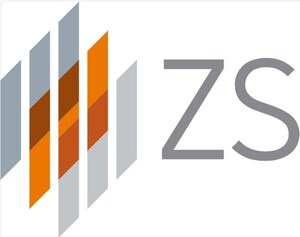
Study: Medtech Companies Struggle to Proactively Address Problems Within Sales Compensation Plans
EVANSTON, Ill., Oct. 20, 2016 /PRNewswire/ -- A new report found that 32 to 46 percent of all medtech companies fail to give parts of their sales compensation plans regular, comprehensive checkups.
According to the 2016 Incentive Practices Research Study from global sales and marketing firm ZS, even companies that regularly scrutinize sales compensation plan design often leave alone other elements of their incentive plans—such as quota-setting, salary levels and new-hire program design—until problems arise.
"Medtech companies need to take a more proactive approach to identifying potential problems within their sales compensation plans before they compromise the success of their entire programs," said Chad Albrecht, a ZS principal and leader in the firm's sales compensation practice. "Even small issues can morph into major problems that impact motivation and retention. Companies need to conduct frequent and comprehensive reviews of their incentive plans to identify hidden dangers and prevent problems from damaging productivity and profitability."
For this year's IPR study, ZS surveyed nearly 30 sales plan administrators at medtech companies. The study found that more than one-third of companies surveyed said they were unsatisfied with their long-term incentive compensation plans. Further, while nearly 90 percent of respondents said they're somewhat or highly satisfied with their company's President's Club program, a third identified fairness as one of the program's biggest issues. And 46 percent of respondents said they don't use third-party data to set quotas.
"Maintaining a sense of fairness is critical," Albrecht said. "Using third-party data to set unbiased, accurate goals and reviewing President's Club and other legacy programs for fairness can prevent these elements of the compensation plan from undermining sales force motivation."
Changing Market Dynamics Require New Sales Approach
The study also identified challenges related to the key account management programs that will increase in importance as medtech grapples with the growing consolidation of hospital groups into integrated delivery networks.
Yet, when medtech companies deploy KAM programs, a mere 14 percent use margin as a metric to determine incentive payouts, contrary to common practices observed outside of medtech. This could compel KAMs to bend to price pressure. Further, nearly 60 percent of respondents cap their KAM incentive programs. The most common cap is an absolute cap on incentive earnings, and only 15 percent of companies use per-deal caps.
"According to ZS estimates, the top 50 integrated delivery networks will control at least 50 percent of the entire U.S. health care market by 2021," said Russell Schubert, a manager in ZS's medical products and services practice. "To properly incentivize KAM roles, medtech companies need to carefully assess plan caps. While a hard cap on overall earnings can hinder motivation, per-deal earnings caps can maximize opportunity and serve as an effective incentive."
For more information about the 2016 Incentive Practices Research study, download an infographic and a copy of the findings.
About ZS
ZS is the world's largest firm focused exclusively on helping companies improve overall performance and grow revenue and market share, through end-to-end sales and marketing solutions—from customer insights and strategy to analytics, operations and technology. More than 4,500 ZS professionals in 22 offices worldwide draw on deep industry and domain expertise to deliver impact for clients across multiple industries. To learn more, visit www.zsassociates.com or follow us on Twitter and LinkedIn.
SOURCE ZS






Share this article